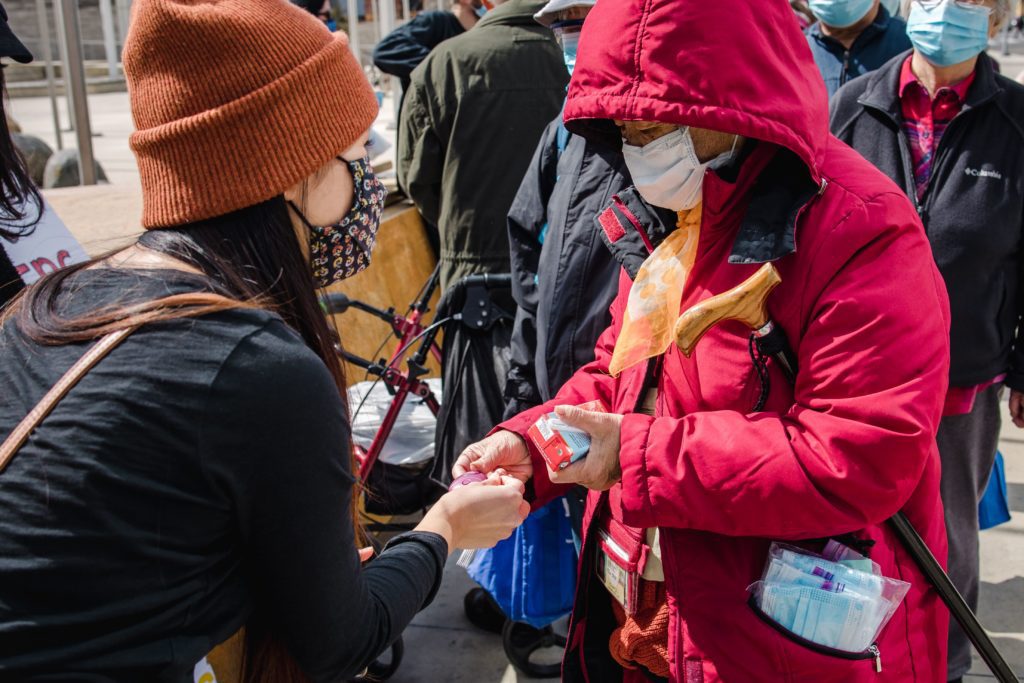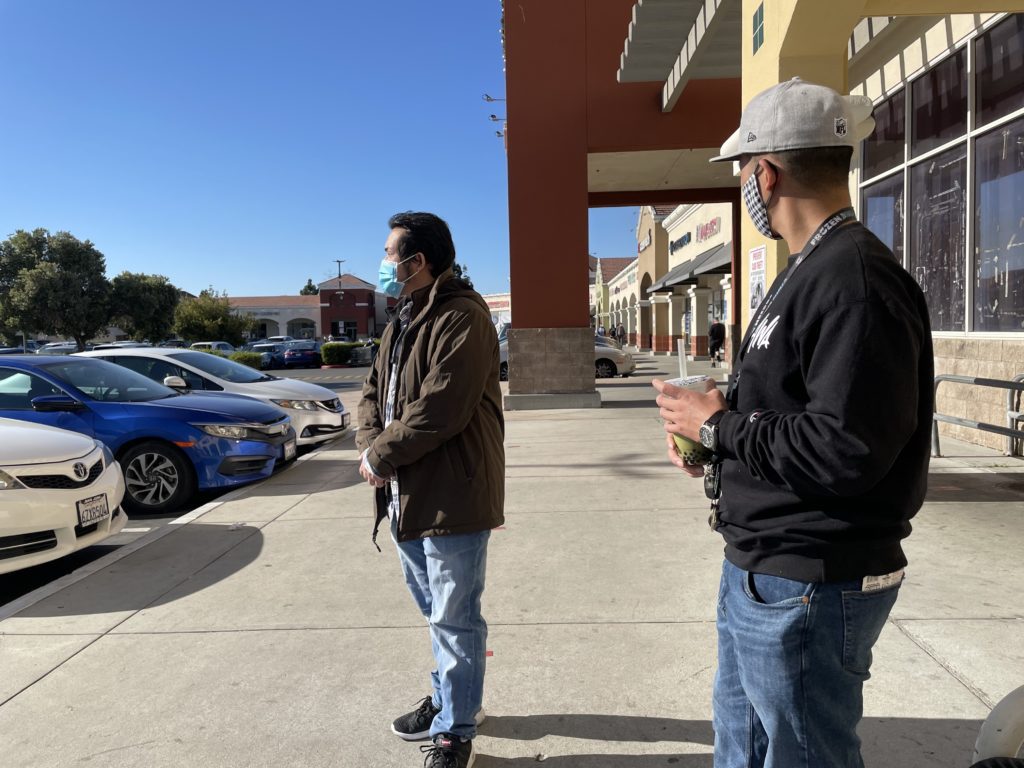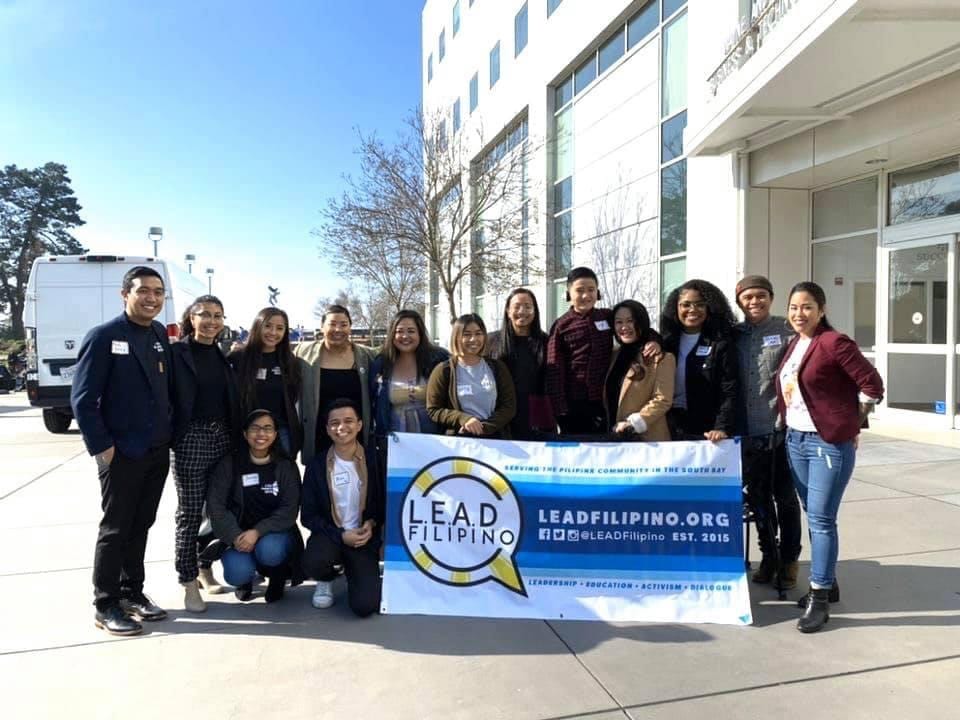Despite being home to an estimated 380,000 Asian residents, advocates say San Jose’s response to a rise in violence against AAPI has been alarmingly slow.
For example, Oakland and San Francisco saw dozens of organizations step up in the wake of the violence to provide financial resources and help. San Jose has just three. Those neighboring cities also saw hundreds of residents pour into the streets, marching in solidarity against anti-Asian crimes in early February. San Jose didn’t see its first major rally for the cause until two weeks ago. And a special hate crime task force here has yet to make any recommendations.
Some Asian residents have taken matters into their own hands by launching foot patrols to keep each other safe.
Milpitas native Jenna Nguyen saw the troubling trend and sprung into action. Her organization, EM Collective, an event and media organization to promote Asian cultures, is fundraising to buy personal alarms for seniors and going into communities to listen to residents’ concerns.
Since the beginning of the pandemic, hate crimes against AAPIs have sharply risen. Between March and December of last year, residents in San Jose reported 58 incidents of targeted crimes to San Francisco-based hate crime watchdog group Stop AAPI Hate—second only to San Francisco. Anxiety and grief in the community reached new heights two weeks ago when a white man in Atlanta, targeting Asian-owned spas, shot eight people dead. Six of the victims were Asian women.
Community organizers in the East Bay also quickly came together to set up mutual aid initiatives, some of which raised more than $150,000 in donations and garnered nearly 700 volunteers. In San Jose, Nguyen’s group is among a few that are on the forefront of organizing.
“For Oakland and San Francisco, they are very, very connected,” Nguyen said. “But I don’t see a lot of organizations here come together, and that’s why I wanted to start in San Jose.”
‘All talk and no action’
While activists say they’re relieved South Bay nonprofits have begun actions like foot patrols, handing out safety items and organizing listening sessions, the slow response time can be blamed on loose-knit connections, the lack of AAPI-related research centers and a cultural and geographic disconnect from other AAPI nonprofits, many of which are based in San Francisco and Oakland.
Since Lunar New Year, Nguyen’s organization has raised nearly $6,000 to purchase personal alarms for older residents. Volunteers spend their weekends distributing the handheld devices and educating Asian residents on how to protect themselves.
Nguyen said she’s frustrated with the city’s response, which promised residents a plan to combat xenophobia last April. It didn’t happen.
“The rallies are important to help raise awareness,” Nguyen said. “But there needs to be more actions. … I don’t know what city leaders want to do and when they want to do it, but they are all talk and no action sometimes.”

Changing the culture
For Angelica Cortez, Silicon Valley has always been different from its neighbors when it comes to activism.
Oakland has a long history of birthing social justice movements and groups, including the Black Panthers. Stop AAPI Hate also found a home at the San Francisco University and has been backed by local leaders like Assemblymembers David Chiu and Phil Ting, both of whom are Chinese American.
“You have deep-rooted activist histories in San Francisco and Oakland and Alameda, and (they have) the infrastructure and agency to act quick,” said Cortez, founder of LEAD Filipino, a San Jose-based organization that promotes civic engagement and Filipino cultural history. “I think we’ve long been overshadowed by being the innovation and tech hub.”
John Le, co-owner of Frozen Ninja ice cream shop in San Jose, and his brother Jimmy, last month started patrolling around the Bay Area—from Oakland’s Chinatown to Grand Century Mall in East San Jose. For the two, both trained in self defense, the patrols are an opportunity to ensure older Asian Americans are not attacked simply by being there.
“I just felt so helpless. I didn’t know what to do,” said John Le. “I knew something had to be done but I didn’t know what to do.”

After John Le learned of an Asian woman who was attacked in downtown San Jose, he kicked off the patrols at the Grand Century Mall and Marina Grocery on Monterey Road with help from Asians With Attitude, a national group formed to combat AAPI racism and stereotypes.
Le makes his rounds accompanied by anywhere from two to five people.
“These attackers are cowards. They attack older people and women,” John Le said. “Once they see us, we’re like a deterrent.”
Former police officer Rich Saito also created his own team in San Jose’s Japantown last week. More than 200 people have reached out to join, according to the group’s website. Saito could not immediately be reached for comment.
Cortez said a research center dedicated to Asian history and activism at San Jose State University — similar to the Bulosan Center at UC Davis — would help elevate stories of Asians and Asian Americans in the South Bay.
EM Collective is also requesting funding from the city to further its efforts. Members have created educational brochures and provided free marketing services to local Asian businesses. The group is also ready to launch a monthly local meet-up called Social Justice Saturdays.
“We’re hoping to meet younger generations and talk to them and maybe inspire them,” Nguyen said. “If the city is not going to do anything, who we can rely on is our community.”
Local government response
San Jose leaders last month tried to revive efforts to protect Asian communities through community listening sessions, safety workshops for seniors and a citywide plan to combat xenophobia, including assigning police to bilingual foot patrols around the city. The city has rolled out one set of listening sessions organized by LEAD Filipino last weekend.
Officers from across the police department have collaborated to increase foot patrols in Asian business districts, such as Japantown. The city released statements condemning violence against AAPIs and Mayor Sam Liccardo teamed up with Oakland Mayor Libby Schaaf and San Francisco Mayor London Breed to release a joint statement to denounce AAPI-related hate crimes.

Daniel Lazo, a LEAD Filipino trustee and a San Jose native, led two listening sessions on Saturday. He hopes the space will provide a place for participants to share their experiences and learn more about how to protect themselves from targeted crimes.
“Unity has always been there, it’s historic,” he said. “We’re seeing this unity surge again because of this surge of hate crimes.”
Santa Clara County this week also approved an action plan, proposed by Supervisor Otto Lee, to combat anti-Asian crimes. But when and how it takes place will be determined in May. The county plan would include “bystander intervention training,” explaining what constitutes a hate crime, how to report it and how to intervene safely, according to county documents.
The county’s hate crime task force has met twice since its creation in February. The group has not yet decided on any action plan.
Contact Tran Nguyen at [email protected] or follow @nguyenntrann on Twitter. Contact Lloyd Alaban at [email protected] or follow @lloydalaban on Twitter.




Leave a Reply
You must be logged in to post a comment.